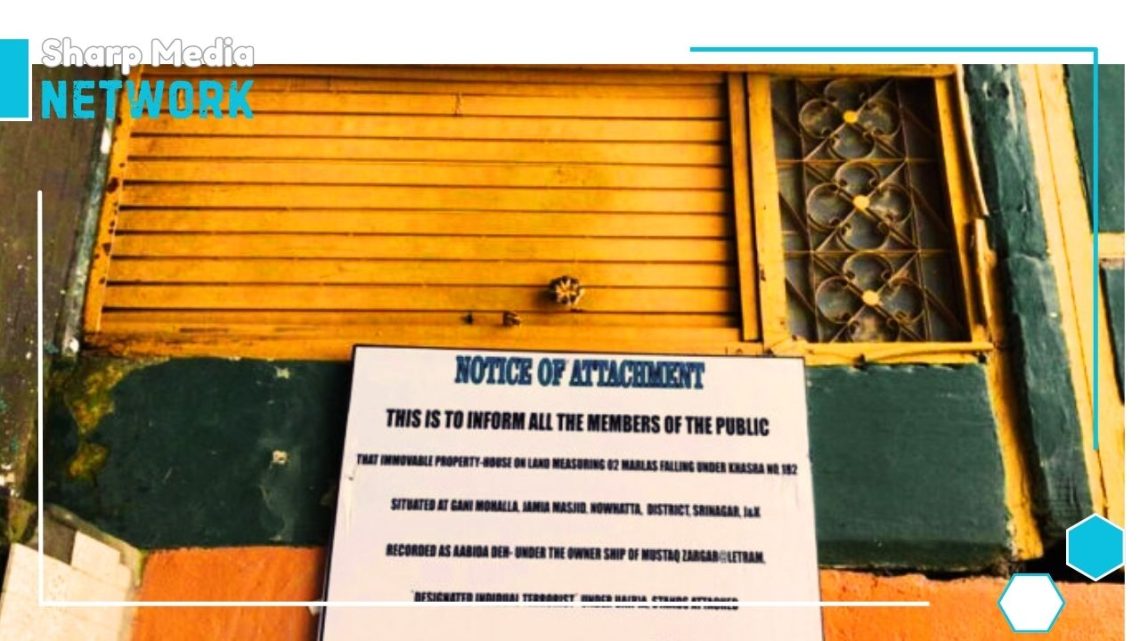
Property Seizures and Identity Erosion Continues in IIOJK
December 6, 2024BJP’s relentless property seizures in IIOJK are not just an attack on land, but a calculated effort to erase the region’s identity and suppress its political voice.
In yet another alarming move by the BJP-led Indian government to undermine Kashmiris, authorities in the Indian Illegally Occupied Jammu and Kashmir (IIOJK) seized the property of a Kashmiri man, Adnan Shafi Dar, in the Wandina Melhora area of Shopian district. This incident is part of a larger, disturbing pattern of property confiscations following the revocation of IIOJK’s special status in August 2019.
The officials claim that Dar was linked to a militant organization, labeling him an “active associate” of mujahid groups. In typical fashion, this seizure was justified under the Unlawful Activities (Prevention) Act (UAPA), a draconian law often used to silence dissent and penalize political opposition. Authorities filed a case against Dar at the Zainapora Police Station, marking another escalation in the campaign to dispossess Kashmiris of their properties under the guise of countering terrorism.
This is far from an isolated incident. Since the abrogation of Article 370 in 2019, the Indian government has escalated its efforts to seize properties from Kashmiris, particularly those suspected of supporting Kashmir’s freedom movement. The legal justification for these actions is based on vague and often unfounded accusations, with UAPA serving as the primary tool for enforcement. This practice raises serious concerns about the fairness and transparency of these operations, as they effectively strip individuals of their rights and properties without due process.
Critics argue that these actions are not merely a response to security concerns but part of a larger strategy aimed at fundamentally altering the demographic fabric of the region. The ongoing property seizures are seen as an attempt to disempower the native Kashmiri population, pushing them further into marginalization while facilitating the settlement of non-local populations. By creating conditions where Kashmiris are dispossessed of their lands and homes, the Indian government is fostering an environment conducive to demographic shifts that will change the political and social landscape of the region.
This deliberate displacement and disenfranchisement are widely viewed as attempts to weaken Kashmir’s Muslim-majority identity. By forcing Kashmiris out of their ancestral lands, India hopes to reduce their influence and pave the way for a demographic transformation that favors outsiders, further diminishing the region’s unique cultural, religious, and political character. Such actions are seen as a violation of Kashmiris’ fundamental rights, including their right to property, and their ability to express political dissent.
The consequences of this policy are clear: the erosion of Kashmir’s distinct identity, the weakening of local resistance movements, and the systematic suppression of any voices calling for autonomy or self-determination. As property seizures intensify, the region faces an existential threat to its cultural integrity and political independence, as the BJP government aggressively pursues its agenda in the disputed region. The international community, however, remains largely silent, complicit in India’s efforts to alter the region’s demographic and political realities.

